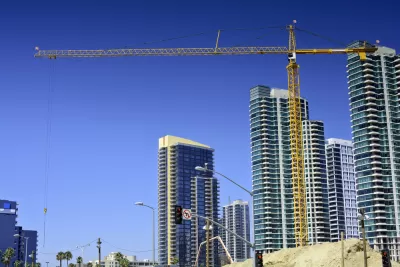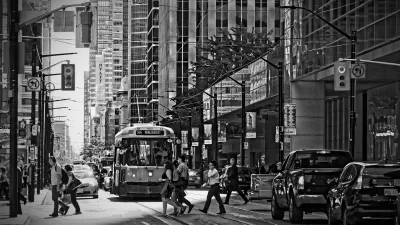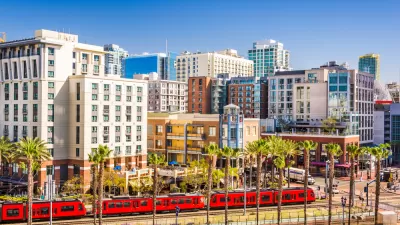The San Diego City Council is poised to give final approval to significant changes to the city's inclusionary zoning requirements,

"The San Diego City Council tentatively approved a controversial set of amendments to the city’s inclusionary housing regulations Tuesday in an effort to increase housing development for low- and moderate-income families," reports Lauren J. Mapp.
The change to the city's inclusionary zoning ordinance would "increase the portion of a development’s units that are kept affordable for people earning a certain percentage of San Diego County’s area median income," according to Mapp.
After the change goes into effect on July 1, 2020, developers would be required to "lease 10% of developments with 10 or more rental units at or below 50% of the county area median income for a family of four, $53,500, or 15% of units at or below 80% of the area median income for a family of four, $85,600."
A study by consulting group Keyser Marston Associates has been cited to make the case the increased inclusionary requirements would be financially feasible for developers, "due to its three-year phase-in and incentives for development like the elimination of the city’s development impact fee on affordable housing units that are built on-site."
A separate study by economists at Point Loma Nazarene University, however, raised warning flags about the consequences of the changes, predicting that the "ordinance would decrease housing units built annually by about 5% and increase home prices 2.5% and rents 3%."
FULL STORY: Controversial Inclusionary Housing Ordinance Passes City Council in 5-4 Vote

Maui's Vacation Rental Debate Turns Ugly
Verbal attacks, misinformation campaigns and fistfights plague a high-stakes debate to convert thousands of vacation rentals into long-term housing.

Planetizen Federal Action Tracker
A weekly monitor of how Trump’s orders and actions are impacting planners and planning in America.

In Urban Planning, AI Prompting Could be the New Design Thinking
Creativity has long been key to great urban design. What if we see AI as our new creative partner?

Florida Seniors Face Rising Homelessness Risk
High housing costs are pushing more seniors, many of them on a fixed income, into homelessness.

Massachusetts Budget Helps Close MBTA Budget Gap
The budget signed by Gov. Maura Healey includes $470 million in MBTA funding for the next fiscal year.

Milwaukee Launches Vision Zero Plan
Seven years after the city signed its Complete Streets Policy, the city is doubling down on its efforts to eliminate traffic deaths.
Urban Design for Planners 1: Software Tools
This six-course series explores essential urban design concepts using open source software and equips planners with the tools they need to participate fully in the urban design process.
Planning for Universal Design
Learn the tools for implementing Universal Design in planning regulations.
Gallatin County Department of Planning & Community Development
Heyer Gruel & Associates PA
JM Goldson LLC
City of Camden Redevelopment Agency
City of Astoria
Transportation Research & Education Center (TREC) at Portland State University
Jefferson Parish Government
Camden Redevelopment Agency
City of Claremont





























